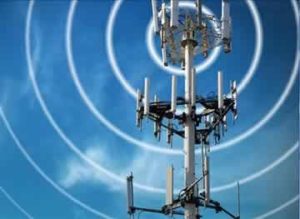-
-
Nashville, Tennessee
-
 If petitions are any indication, a growing number of Canadians are very concerned about being zapped by radiation from their cellphones, baby monitors and wireless internet routers.
If petitions are any indication, a growing number of Canadians are very concerned about being zapped by radiation from their cellphones, baby monitors and wireless internet routers.
Seven of the 16 environmental petitions submitted to the auditor general’s office between July 2016 and June 2017 “concerned potential adverse health effects on humans from radiofrequency electromagnetic radiation from personal wireless devices,” according to one of the fall reports from Canada’s environment commissioner, released Tuesday. That’s up from one in 2014-2015 and none in 2015-2016.
Several of the petitions express concern about how close people hold their cellphones to their bodies. One requests that Canada stop marketing wireless devices to children under 14. Another focuses on the possible impacts of radiation on the human eye and newborn babies. One asks that Statistics Canada collect data on electromagnetic hypersensitivity as part of its Canadian community health survey, while another wants the federal government to monitor radiofrequency and microwave radiation in schools.
The petitions were submitted by individuals and organizations in Ontario and Manitoba. One was filed by a group called Canadians for Safe Technology (C4ST), which claims on its website that “current assumptions about the safety of electromagnetic radiation are outdated and must be revised.”
On its website, Health Canada states that a growing number of people are reporting symptoms they attribute to electromagnetic fields (EMFs), including headaches, fatigue, nausea and skin redness. But according to the department, “there is no scientific evidence that the symptoms attributed to EHS (electromagnetic hypersensitivity) are actually caused by exposure to EMFs.”
According to the World Health Organization’s website, ‘no adverse health effects from low level, long-exposure to radiofrequency or power frequency fields have been confirmed.’
The true cause of the symptoms is “unclear,” Health Canada says, but could be related to fluorescent lights or glare from computer monitors.
The petitioners all take aim at Canada’s Safety Code 6, Health Canada’s radiofrequency human exposure guidelines, many suggesting the guidelines aren’t stringent enough.
Health Canada says Safety Code 6 guidelines are based on hundreds of peer-reviewed studies and are “set far below the lowest level of RF (radiofrequency) exposure that could produce potentially harmful effects in humans.” The code was most recently updated in 2015.
According to the World Health Organization’s website, “no adverse health effects from low level, long-exposure to radiofrequency or power frequency fields have been confirmed,” though research continues. Studies to date have not shown a link between normal exposure to radiofrequency radiation and increased risk of cataracts, cancer or pregnancy problems.
In June 2015, the House of Commons health committee issued a report recommending that the government further study electromagnetic hypersensitivity and a possible connection between wireless device use and cancer. In response, the government promised to keep studying the international scientific literature.
But that’s not good enough, argue the petitioners. According to the environment commissioner’s report, one petition “asks the (health) minister to produce the scientific findings that Health Canada used to support Safety Code 6.”
Unlike other government petitions, environmental petitions don’t need multiple signatures. They are submitted to the environment commissioner, who obtains answers from relevant federal ministers. None of these seven petitions have yet received a response.
In contrast, public petitions presented in the House of Commons require the support of at least five Canadians and must be sponsored by a member of Parliament.
Recent public petitions include requests that the government ban shock collars on pets (5,421 signatures), that curling be declared a national sport (3,659 signatures) and that Parliament pass a law giving employees the legal right to ignore work emails outside working hours (79 signatures).
Posted in Advocacy, Cell Towers